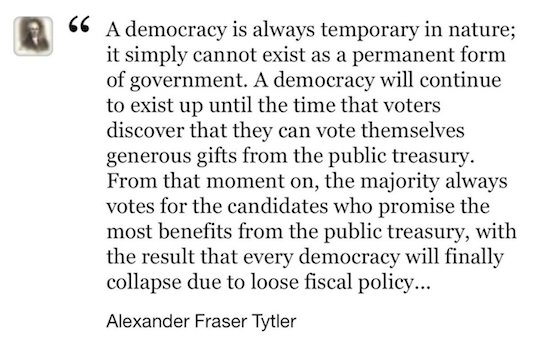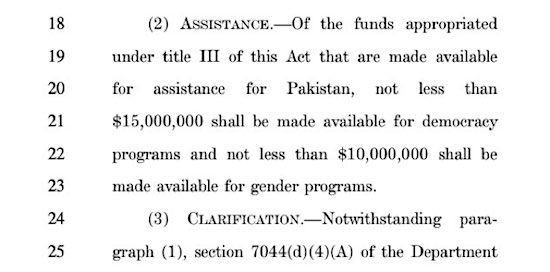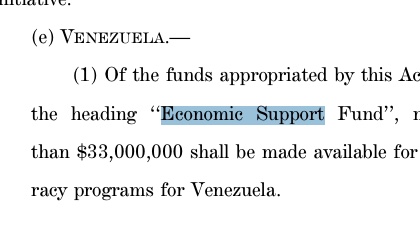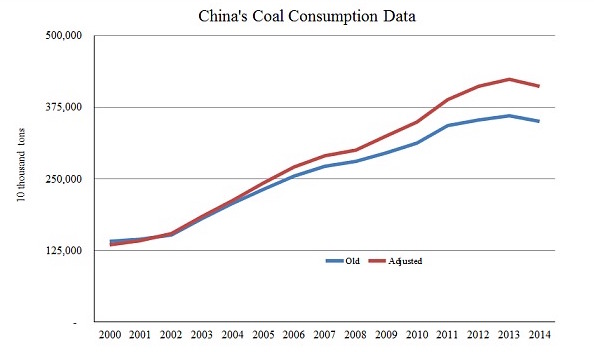
Vincent van Gogh Banks of the Seine with Pont de Clichy in the Spring 1887



Tulsi
https://twitter.com/i/status/1341027010353750016

A very long list of research. We can’t afford not to ask questions.
• Lockdowns Do Not Control the Coronavirus (AIER)
The use of universal lockdowns in the event of the appearance of a new pathogen has no precedent. It has been a science experiment in real time, with most of the human population used as lab rats. The costs are legion. The question is whether lockdowns worked to control the virus in a way that is scientifically verifiable. Based on the following studies, the answer is no and for a variety of reasons: bad data, no correlations, no causal demonstration, anomalous exceptions, and so on. There is no relationship between lockdowns (or whatever else people want to call them to mask their true nature) and virus control.
Perhaps this is a shocking revelation, given that universal social and economic controls are becoming the new orthodoxy. In a saner world, the burden of proof really should belong to the lockdowners, since it is they who overthrew 100 years of public-health wisdom and replaced it with an untested, top-down imposition on freedom and human rights. They never accepted that burden. They took it as axiomatic that a virus could be intimidated and frightened by credentials, edicts, speeches, and masked gendarmes. The pro-lockdown evidence is shockingly thin, and based largely on comparing real-world outcomes against dire computer-generated forecasts derived from empirically untested models, and then merely positing that stringencies and “nonpharmaceutical interventions” account for the difference between the fictionalized vs. the real outcome.
The anti-lockdown studies, on the other hand, are evidence-based, robust, and thorough, grappling with the data we have (with all its flaws) and looking at the results in light of controls on the population. Much of the following list has been put together by data engineer Ivor Cummins, who has waged a year-long educational effort to upend intellectual support for lockdowns. AIER has added its own and the summaries. The upshot is that the virus is going to do as viruses do, same as always in the history of infectious disease. We have extremely limited control over them, and that which we do have is bound up with time and place. Fear, panic, and coercion are not ideal strategies for managing viruses. Intelligence and medical therapeutics fare much better.

“She acts like someone who knows something, and knows that the something she knows is not altogether a good something. Notice the giggling has ceased.”
• Yuletide Visitations (Kunstler)
It says something, does it not, that the corporeal Joe Biden is missing-in-action? You’d think he’d be bustling around like crazy out there, trying to, at least, give some impression of being at-large-and-in-charge, preparing to launch a score of battles against the enemies of peace and prosperity lately afflicting this sore-beset nation, yo-yo-ing back and forth between Jake Tapper and Rachel Maddow to reassure their cringing viewers of Wokedom come, wolfing down plates of field peas, ham hocks, and cornbread to display his allyship with the downtrodden masses of this-and-that color, gender, flavor, and texture, comforting the homeless on the pitiless streets of the ailing cities, volunteering to get stuck with vaccine needles of every pharma company on the S & P, with side orders of hydroxychloroquine, Ivermectin, and famotidine, huddling with the nabobs of Wall Street to halt the sinking dollar, visiting the troops with plane-loads of turkey dinners — you know… rallying the worried people of this anxious land in their time of trouble….
And what of Kamala Harris? Did she steal off to some Caribbean beach to mull over her options? It appears that she’s still holds that seat in the US Senate, let’s face it, a very cushy sinecure that “fixes” its exalted members for life, and in more ways than one, if you know what I mean. Of all the thoughts racing through Ms. Harris’s skull these dark days, I suspect the dimmest of them concerns the actual possibility she may actually end up as president. She acts like someone who knows something, and knows that the something she knows is not altogether a good something. Notice the giggling has ceased.
And so, we pass through a weekend of predictable news that Congress has authorized another gazillion dollars to bail out stock markets and banks, under the guise of helping ordinary Americans hopelessly crushed by lockdowns and government-induced small business failures, and we hurtle toward what’s likely to be the bluest Christmas in memory with the republic in the balance. The president… that would be Mr. Trump… is portrayed in the nervous mainstream news media as flailing wildly around the West Wing, confabbing with Krakens, battling with his “closest advisors,” all importuning him to concede the election. D’ya think so? Maybe, but I’m not so sure.

Not long ago, Krebs said the 2020 elections were the safest and most secure in history. Where are the questions to him?
• Chris Krebs Takes Blame For Massive Hack: ‘It Happened On My Watch’ (NYP)
The former head of cybersecurity at the Department of Homeland Security accepted the blame for the hack that infiltrated the computer systems of a number of federal agencies, including the Pentagon, and scores of companies in the private sector. In a Sunday interview on CNN’s “State of the Union,” Chris Krebs, the former director of the Cybersecurity and Infrastructure Security Agency, was asked by host Jake Tapper who was at fault for the breach. “So, the way I look at it is, yes, it happened on my watch at CISA. And we missed it. A bunch of other folks missed it,” he responded. Krebs, who was fired by President Trump last month for contradicting him over whether there was fraud during the 2020 election, said he didn’t become aware of the hack that was launched in March until it became public last week.
“This came out in the public after I was terminated,” he said. But Trump has not blamed Krebs for the attack. During the interview, Krebs said he trusts the “intelligence community” that Russia was behind the hack, a stand contrary to the president, who has claimed it was China. “Everything I have heard, whether it’s from private-sector cybersecurity threat intelligence experts, things I have heard out of Congress and the intelligence community, it’s Russia,” Krebs said. “I mean, they’re exceptionally good at this, particularly the foreign intelligence service, the SVR. They’re good. They’re quiet. They’re deliberate. They’re patient and they’re careful,” he continued.

If anything, Trump fired him far too late.
• Krebs’ CISA Was Flagged Repeatedly For Poor Performance (JTN)
In the weeks just before President Trump fired its leader, the federal Cybersecurity and Infrastructure Security Agency (CISA) was repeatedly flagged by the Homeland Security Department’s watchdog for poor performance, including inadequate physical security planning for election sites, poor intelligence sharing with its private and public partners and weak information security for its own systems, internal reports show. The repeated Inspector General’s warnings in September and October about CISA — under then-Director Chris Krebs’ leadership — provide a stark contrast to Democrats’ and the news media’s portrayal of Krebs as a skilled leader whose firing jeopardized national security.
The internal memos, reviewed by Just the News, also provide some fodder to understand how the U.S. government could have failed to detect for nine months one of the largest cyberattacks in history, which was finally revealed earlier this month. CISA is primarily responsible for quarterbacking cybersecurity at civilian federal agencies. “Risks to the Nation’s systems and networks continue to increase as security threats evolve and become more sophisticated. As such, the cyber threat information DHS provides to Federal agencies and private sector entities must be actionable to help better manage this growing threat,” the inspector general warned in one report earlier this fall. “Until CISA improves the quality of its information sharing, AIS participants remain restricted in their ability to safeguard their systems and the data they process from attack, loss, or compromise.”

A special counsel seems called for. Sidney Powell has reportedly visited the White House almost every day lately.
• Dominion Voting Website Scrubbed Of Reference To SolarWinds (JTN)
Dominion Voting Systems recently scrubbed a reference on its web site to a company at the center of a major cybersecurity breach allegedly carried out by Russian hackers. The Austin, Texas-based software company SolarWinds has been the subject of explosive controversy, due to revelations that a hacker or group of hackers, possibly originating from Russia, used vulnerabilities in its software to breach “U.S. government agencies, critical infrastructure entities, and private sector organizations” starting in at least March 2020, the U.S. Cybersecurity and Infrastructure Security Agency said Thursday.
The breach occurred in part via SolarWinds’s Orion platform, which CISA described as “an enterprise network management software suite that includes performance and application monitoring and network configuration management along with several different types of analyzing tools.” SolarWinds said on its website that the hack “could potentially allow an attacker to compromise the server on which the Orion products run.” The company “currently believes the actual number of customers that may have had an installation of the Orion products that contained this vulnerability to be fewer than 18,000,” SolarWinds said in SEC filings on Monday.
Multiple government agencies including the Treasury, the Department of Defense and the Department of Homeland Security may have been affected by the breach, according to reports. Dominion Voting Systems, the company that for the last six weeks has been at the center of controversy and allegations surrounding the 2020 election, had a reference on its Web site until sometime last week indicating it used SolarWinds to manage its DVS file share system, according to archival web captures. Dominion’s Web site suggested it utilized SolarWinds’s Serv-U FTP file transfer platform to manage that system. Yet some time between Dec. 14 and Dec. 18, the company scrubbed the reference to SolarWinds from the current FTP login page.

When will we all realize that this is all Washington is capable of anymore? That it has nothing to do with which party you vote for?
• House Passes 5593 Page Stimulus Bill Without Anyone Having Read It (ZH)
In the immortal words of Nancy Pelosi: “we have to pass the bill so that you can find out what’s in it.” Because, as Utah Senator Mike Lee so rambunctiously pointed out tonight, the bill is so huge that Lee said it will take three hours just to print out. And they’ll still have to vote on the bill tonight. It’s unreal. Lee noted that “this is by far the longest bill I’ve ever seen,” and added that members won’t be allowed to amend the bill in any way: “Here’s the really sad thing: we’re being told that there will be no opportunity to amend or improve it. As a result, nearly every member of Congress – House and Senate, Democrat or Republican – will have been excluded from the process of developing this bill, which will cost American taxpayers trillions of dollars.
“This process, by which members of Congress are asked to defer blindly to legislation negotiated entirely in secret by four of their colleagues, must come to an end. It won’t come to an end until no longer works for those empowered by it. That can happen, but only when most members of both houses and both political parties stop voting for bills they haven’t read—and, by design, cannot read until after it’s too late.”


They come up with these things together, and then blame each other for the failures.
“Pelosi, it’s worth noting, is one of the wealthiest members of Congress, with a net worth estimated at more than $100 million (she makes $223,000 a year in salary)”
• Pelosi Calls $600 COVID19 Payments To Americans ‘Significant’ (JTN)
A $900 billion compromise bill heading toward passage on Capitol Hill includes a $600 check for Americans struggling to make ends meet during the COVID-19 pandemic, an amount that House Speaker Nancy Pelosi calls “significant.” Under the last stimulus bill passed by Congress in March, more than 150 million Americans received $1,200 payments as the government returned nearly $270 billion to Americans. In a short statement on the House floor on Monday, Pelosi took the opportunity to bash President Trump as she discussed the new relief checks. “I would like them bigger, but they are significant, and they will be going out soon,” Pelosi said.
“The president may insist on having his name on the check. But make no mistake, those checks are from the American people. The American people’s name should be on that check, no individual.” Pelosi, it’s worth noting, is one of the wealthiest members of Congress, with a net worth estimated at more than $100 million (she makes $223,000 a year in salary). And for the record, when Trump signed into law tax cuts that prompted numerous businesses to give $1,000-$2,5000 bonuses to millions of workers, Pelosi called that amount “crumbs.”


“Congress just decided you get $600. Add that to the $1,200 from March, and it totals $6.69 a day since the country shut down in March. Both parties don’t care if we live or die or sleep in a box on a sidewalk in January..”
• A Slap in the Face: Anger at Pelosi, Democrats Over $600 Stimulus Check (MPN)
Lawmakers in Washington agreed to a new $900 billion coronavirus stimulus package yesterday. The bill, like the previous CARES Act, appears to include huge new tax breaks for corporations and the very wealthy. However, of most note to average Americans is the means-tested check of up to $600 plus $600 per child that Republicans and Democrats decided on. Although far less than the $1,200 checks mailed out to Americans in the spring, Democratic lawmakers are presenting the deal as a triumph. Senate Minority Leader Chuck Schumer of New York described it as “a strong, strong shot in the arm to get things going.” Speaker of the House of Representatives Nancy Pelosi agreed, although she blamed the GOP for holding the agreement up. “What took so long is because we could not get our Republican colleagues to crush the virus…Why would they not want to invest in the science?” she said at a press conference on Sunday.
The bill also includes a $300 boost to federal unemployment benefits (half of what it was six months ago) and a pause on evictions for an unspecified length of time. Despite senior Democrats’ spin, it appeared that the primary public reaction to the deal was one of anger, judging by comments on social media. “Congress just decided you get $600. Add that to the $1,200 from March, and it totals $6.69 a day since the country shut down in March. Both parties don’t care if we live or die or sleep in a box on a sidewalk in January,” said Professor Anthony Zenkus of the Columbia School of Social Work. “This country sucks,” and “Congress is laughing at the $600. They don’t give a shit about you,” were also popular refrains. Others described the $600 as “a slap in the face” rather than a shot in the arm.
David Sirota, a former speechwriter and senior advisor to Senator Bernie Sanders, described the bill as a “victory for an austerity ideology that somehow still reigns supreme in Washington,” and “not even the bare minimum that should be considered acceptable during an economic meltdown that has been punctuated by mass starvation and intensifying poverty.” There was also considerable anger aimed at Speaker Pelosi herself. “You are corrupt and despicable,” wrote Palestinian-American journalist Ali Abunimah, “You denied people relief before the election as a political ploy and you still lost seats. Now you give people who are losing jobs and homes $600. The ice cream in your freezer is worth more than that!”


Pork for Christmas.
• COVID19 Relief Bill Doubles Health Care Budget – For Congress (IC)
In a flurry of last-minute legislating over coronavirus relief, congressional leaders abandoned hazard pay for essential workers and emergency funding for local governments that may be on the brink of municipal bankruptcy. But lawmakers did find funding to dramatically increase the budget for the exclusive government-run health clinic that serves Congress. The Office of Attending Physician, which provides medical services to lawmakers, received a special boost of $5 million, more than doubling its annual budget, which is currently around $4.27 million. The increase in funding to the OAP, if passed, is the third budget hike Congress has provided to its own health clinic over the last year. The 2019 omnibus provided an increase in funding to the OAP, along with the CARES Act, which passed this past March.
The OAP, described as “some of the country’s best and most efficient government-run health care,” employs several physicians and nurses to provide on-call treatment to legislators on Capitol Hill. The new funding is justified by new services required for confronting the pandemic, though the office also provides lawmakers with the services of a chiropractor, on-site physical therapy, radiology, routine examinations, and a pharmacist. The office, led by Dr. Brian Monahan, has been in the news in recent days for administering the Covid-19 vaccine produced by Pfizer to congressional leaders. The office has treated lawmakers who have been infected by the virus and provided guidance for reopening Congress after the initial surge of infections earlier this year.
The significant increase in funding for congressional health services comes as some provisions for working-class Americans were sharply curtailed or eliminated entirely. Earlier versions of the second round of stimulus legislation included $200 billion to pay front-line essential workers an additional $13 per hour. The special funding would have provided a special boost to nurses and other front-line medical workers. That provision did not make it to the final bill released on Monday. The proposed $1,200 stimulus checks were also reduced to $600. The coronavirus relief legislation also contains dozens of provisions that benefit business owners and investors, including tax benefits for owners of racehorses, the full expansion of the “three-martini lunch” tax deduction for business meals, and the so-called double dip tax deduction for recipients of Paycheck Protection Program stimulus money to use tax-free grants from the federal government to reduce taxable income.


“..an extraordinarily self-indulgent exercise that oscillates between false modesty, petty recrimination, sputtering justification, and auto-hagiography.”
• Barack Obama Has Nothing to Say About Central America (Goodfriend)
Barack Obama’s seven-hundred-page memoir — nine hundred including photos and notes — is an extraordinarily self-indulgent exercise that oscillates between false modesty, petty recrimination, sputtering justification, and auto-hagiography. Many have noted how Obama takes the opportunity to rewrite history, asserting new explanations for controversial actions. But the book is also notable for its omissions. Despite the painful absence of an editor’s hand to curb the president’s excesses, significant events, even entire regions, have been deleted from Obama’s account of his rise to power and first term in office.
In 1981, Reagan’s UN Ambassador called Central America “the most important place in the world for the United States.” The site of US bloody counterrevolutionary interventions during the Cold War, a laboratory of neoliberal restructuring in the 1990s and 2000s, and the source of increasingly criminalized and stigmatized mass migration to the United States, Central America and Central Americans have occupied an outsized role in US policy and political discourse over the last fifty years. Yet Central America is among the casualties of Obama’s book, assigned to oblivion together with other unsavory notables like Hugo Chávez or Bernie Sanders.
On June 1, 2009, Obama’s secretary of state Hillary Clinton traveled to El Salvador to attend the inauguration of President Mauricio Funes, a progressive journalist who made history as the first leftist president ever to govern the country, elected on the ticket of the party of the former Marxist-Leninist insurgency that fought the US-backed military dictatorship to a draw in 1992. Just weeks later, Clinton’s State Department rushed to legitimize a military coup against Manuel Zelaya, the democratically-elected, increasingly left-leaning president of Honduras next door. The coup shocked the hemisphere and was the first brazen attack in a cascade of reaction against the progressive and left governments that had been elected throughout Latin America over the course of the previous decade.
In her 2014 memoir, Clinton dedicated two pages to the affair, writing that in the coup’s aftermath, “We strategized on a plan to restore order in Honduras and ensure that free and fair elections could be held quickly and legitimately, which would render the question of Zelaya moot and give the Honduran people a chance to choose their own future.” That line, together with the entire account of the coup, was quietly eliminated from the paperback edition. Obama learned Clinton’s lesson and then some. Honduras receives no mention in his book, save a single reference with respect to Tim Kaine’s mission work. Indeed, Central America as a whole is mentioned precisely once, in a passing comment on migration. Guatemala, Costa Rica, Nicaragua, Panama, and Belize do not appear at all.


Bipartisan: failed stimulus and Russiagate.
• A Pandemic of ‘Russian Hacking’ (McGovern/Lauria)
The hyperbolic, evidence-free media reports on the “fresh outbreak” of the Russian-hacking disease seems an obvious attempt by intelligence to handcuff President-elect Joe Biden into a strong anti-Russian posture as he prepares to enter the White House. Biden might well need to be inoculated against the Russophobe fever. There are obvious Biden intentions worrying the intelligence agencies, such as renewing the Iran nuclear deal and restarting talks on strategic arms limitation with Russia. Both carry the inherent “risk” of thawing the new Cold War. Instead, New Cold Warriors are bent on preventing any such rapprochement with strong support from the intelligence community’s mouthpiece media. U.S. hardliners are clearly still on the rise.
Interestingly, this latest hack story came out a day before the Electoral College formally elected Biden, and after the intelligence community, despite numerous previous warnings, said nothing about Russia interfering in the election. One wonders whether that would have been the assessment had Trump won. Instead Russia decided to hack the U.S. government. Except there is (typically) no hard evidence pinning it on Moscow. The official story is Russia hacked into U.S. “government networks, including in the Treasury and Commerce Departments,” as David Sanger of The New York Times reported. But plenty of things are uncertain. First, Sanger wrote last Sunday that “hackers have had free rein for much of the year, though it is not clear how many email and other systems they chose to enter.”
The motive of the hack is uncertain, as well what damage may have been done. “The motive for the attack on the agency and the Treasury Department remains elusive, two people familiar with the matter said,” Sanger reported. “One government official said it was too soon to tell how damaging the attacks were and how much material was lost.” On Friday, five days after the story first broke, in an article misleadingly headlined, “Suspected Russian hack is much worse than first feared,” NBC News admitted: “At this stage, it’s not clear what the hackers have done beyond accessing top-secret government networks and monitoring data.” Who conducted the hack is also not certain.
NBC reported that the U.S. Cybersecurity and Infrastructure Security Agency “has not said who it thinks is the ‘advanced persistent threat actor’ behind the ‘significant and ongoing’ campaign, but many experts are pointing to Russia.” At first Sanger was certain in his piece that Russia was behind the attack. He refers to FireEye, “a computer security firm that first raised the alarm about the Russian campaign after its own systems were pierced.” But later in the same piece, Sanger loses his certainty: “If the Russia connection is confirmed,” he writes. In the absence of firm evidence that damage has been done, this may well be an intrusion into other governments’ networks routinely carried out by intelligence agencies around the world, including, if not chiefly, by the United States. It is what spies do.

A delightful angle.
• If Assange’s Fate Were Up To a Jury, He, Too, Might Have Walked Free (Glass)
When the magistrate presiding last September at Julian Assange’s extradition hearing, Vanessa Baraitser, confined the defendant to a bullet-proof glass cage at the back of the court, she had precedent on her side. All who entered her courtroom at London’s Central Criminal Court, the Old Bailey, had to pass a plaque memorializing a case against another defender of free speech and thought. The finely wrought marble plaque reads:
Near this Site
William Penn and William Mead
were tried in 1670
for preaching to an unlawful assembly
in Grace Church Street
This tablet Commemorates
The courage and endurance of the Jury, Thos. Vere, Edward Bushell
and ten others who refused to give a verdict
against them and were fined for their final
Verdict of Not Guilty…William Penn, then a 26-year old Quaker firebrand, stood accused of preaching doctrines anathema to the established Church of England during an unlawful assembly. When the judges asked how he pleaded, Penn demanded to know which law he had broken. Sir John Howell, the recorder of London, told him he was charged under common law. Penn asked, “Where is that common law?” The exchange continued:
HOWELl: You must not think that I am able to run up so many years, and over so many adjudged cases, which we call common law, to answer your curiosity.
PENN: This answer, I am sure, is very short of my question, for if it is common, it should not be so very hard to produce.
HOWELL: The question is, whether you are guilty of the indictment.
PENN: The question is not, whether I am guilty of this indictment, but whether this Indictment is legal.
The recorder called him “an impertinent fellow” and banished him to the bale-dock for the rest of the trial. Like Assange’s glass box, the bale-dock was a locked cubicle separated from the rest of the court. Its underfloor location prevented Penn from witnessing the proceedings—and the jurors from seeing him.
Just as Assange admitted publishing American government documents that exposed war crimes, Penn did not deny preaching to his fellow Quakers. If ever a jury deserved the accolade “12 good men and true,” Penn’s did. Foreman Edward Bushell and the other 11 jurors retired to consider their verdict. When they returned, they declared Penn not guilty. The furious Recorder ordered that “you shall be locked up without meat, drink, fire, and tobacco…. We will have a verdict by the help of God or you will starve for it.” For two days, they starved. When they still refused to recant, the court fined them 40 marks, a large sum for the time, and sent them to prison. The jurors appealed, the chief justice ordered their release, and the principle of jury independence was enshrined in English law. Penn went free and 12 years later established the colony of Pennsylvania on the principles of religious tolerance and free thought.

Cut to New York, 1735. Another free thinker, printer John Peter Zenger, was tried for seditious libel over allegations leveled in the New York Weekly Journal at Royal Governor William Cosby. Cosby, in common with the US Justice Department’s vendetta against Assange, sought to prosecute Zenger at any cost. He had copies of the Journal burned. Although two grand juries refused to indict Zenger, Cosby threw him into prison anyway and brought him to trial. Zenger was fortunate in his choice of lawyer, Pennsylvanian Andrew Hamilton. Hamilton’s strategy was to present evidence of Cosby’s corruption—proving that Zenger had published the truth. The prosecutor answered that “being true is an aggravation of the crime.” As in the Assange case, truth appeared not to be a defense so much as evidence of guilt. Hamilton appealed to the jurors rather than the bench. As former US senator Charles Goodell wrote in his 1973 Political Prisoners in America, “Hamilton asked the twelve to do what the judges refused to do, and what they ruled the jury had no right to do, to consider Cosby’s record as a justification for Zenger’s crime.” The Bushell-Penn precedent gave the jury the right to overrule the judges, and they did. Zenger’s newspaper resumed its vilification of Cosby, who died in disgrace two years later.

We try to run the Automatic Earth on donations. Since ad revenue has collapsed, you are now not just a reader, but an integral part of the process that builds this site.
Click at the top of the sidebars for Paypal and Patreon donations. Thank you for your support.

There are two ways to get enough. One is to continue to accumulate more and more. The other is to desire less.
– G.K. Chesterton

Xylophone plays Bach in a forest.
Enormous xylophone in the woods of Kyushu, Japan plays a Bach tune when a wooden ball rolls down each "key." An impressive piece of engineering. pic.twitter.com/fE0VocHGAy
— Scott Kerr (@scott_kerr) December 19, 2020

Support the Automatic Earth in virustime, election time, all the time. Click at the top of the sidebars to donate with Paypal and Patreon.










